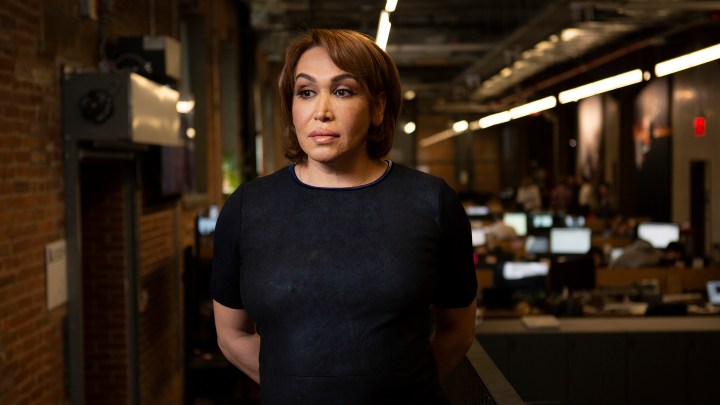
Trans workers face bias, barriers that affect income as pandemic lingers
Trans workers face bias, barriers that affect income as pandemic lingers

Before the pandemic, if you look by demographic, Black transgender employees faced the most economic challenges of any group of workers in the U.S.
The pandemic has piled on new challenges, but added federal protections and the increase in virtual interactions this year may be helping.
Applying for and interviewing for a job always involves a lot of scrutiny: your qualifications, how you present, how you sound, how you look. That scrutiny is still there during the pandemic, but remote screening seems to eliminate some bias.
“With the number of companies now doing phone screenings as a first line of entry, it’s actually given trans folks some more opportunity because they’re being assessed by the quality of their candidacy,” said Victoria Kirby York, deputy executive director for the National Black Justice Coalition.
It’s hard to get past that hurdle though. Jody Herman, a scholar of public policy at the UCLA School of Law, said her research shows that compared to the U.S. population at large, trans people are the most likely to be unemployed or living in poverty.
“And these issues are particularly worse for Black respondents and other respondents who are people of color,” Herman said.
For those who do land jobs, 77% of trans individuals say they’ve taken active steps to avoid mistreatment at work.
Hundreds of companies do have discrimination policies that cover trans employees, and some have gender-neutral dress codes and bathrooms.
But that’s often not enough, especially in the pandemic. Now bosses and colleagues are all peering into each other’s personal lives through computer screens.
“Especially for individuals who are not out about their identities, we’re seeing that from remote work that this might be a source of anxiety,” said Christian Thoroughgood, professor of psychology and human resources at Villanova University.
He said this summer’s Supreme Court ruling clarifying that the Civil Rights Act protects gay and transgender workers from workplace discrimination may push more managers to adopt and enforce more local policies protecting trans employees.
But, he adds, because the pandemic is ongoing, it’s hard to do research on the impact of the ruling, and it’s hard for workplaces to implement new policies.
COVID-19 Economy FAQs
What happens if the federal government does not provide more money to state and local governments in the next round of coronavirus relief?
Unlike the federal government, most state and local governments are bound by balanced budget requirements, meaning that when revenues decline, they’re forced to either reduce spending or increase taxes. Without federal assistance, the revenue drop would likely result in more job losses, said Tracy Gordon, a senior fellow with the Urban-Brookings Tax Policy Center. State and local governments employ more workers than any other sector, Gordon said.
What will it take to persuade people to get a COVID-19 vaccine?
There’s a saying in public health that vaccines don’t save lives, vaccinations save lives. A recent Pew Research poll shows 60% of Americans would definitely or probably get a COVID-19 vaccine if one were available today. That’s an improvement, but 21% still said they do not intend to get vaccinated and are “pretty certain” more information won’t change their minds. So what’ll it take? Building trust, said James Colgrove, a professor of public health at Columbia University. Having famous people get vaccinated on camera is one tactic for that. Former Presidents Barack Obama, George W. Bush and Bill Clinton have already volunteered.
Are states ready to roll out COVID-19 vaccines?
Claire Hannan, executive director of the nonprofit Association of Immunization Managers, which represents state health officials, said states have been making good progress in their preparations. And we could have several vaccines pretty soon. But states still need more funding, she said. Hannan doesn’t think a lack of additional funding would hold up distribution initially, but it could cause problems down the road. “It’s really worrisome that Congress may not pass funding or that there’s information circulating saying that states don’t need additional funding,” she said.
As a nonprofit news organization, our future depends on listeners like you who believe in the power of public service journalism.
Your investment in Marketplace helps us remain paywall-free and ensures everyone has access to trustworthy, unbiased news and information, regardless of their ability to pay.
Donate today — in any amount — to become a Marketplace Investor. Now more than ever, your commitment makes a difference.

Marketplace has you covered.
Get our face mask as a bonus gift today!








